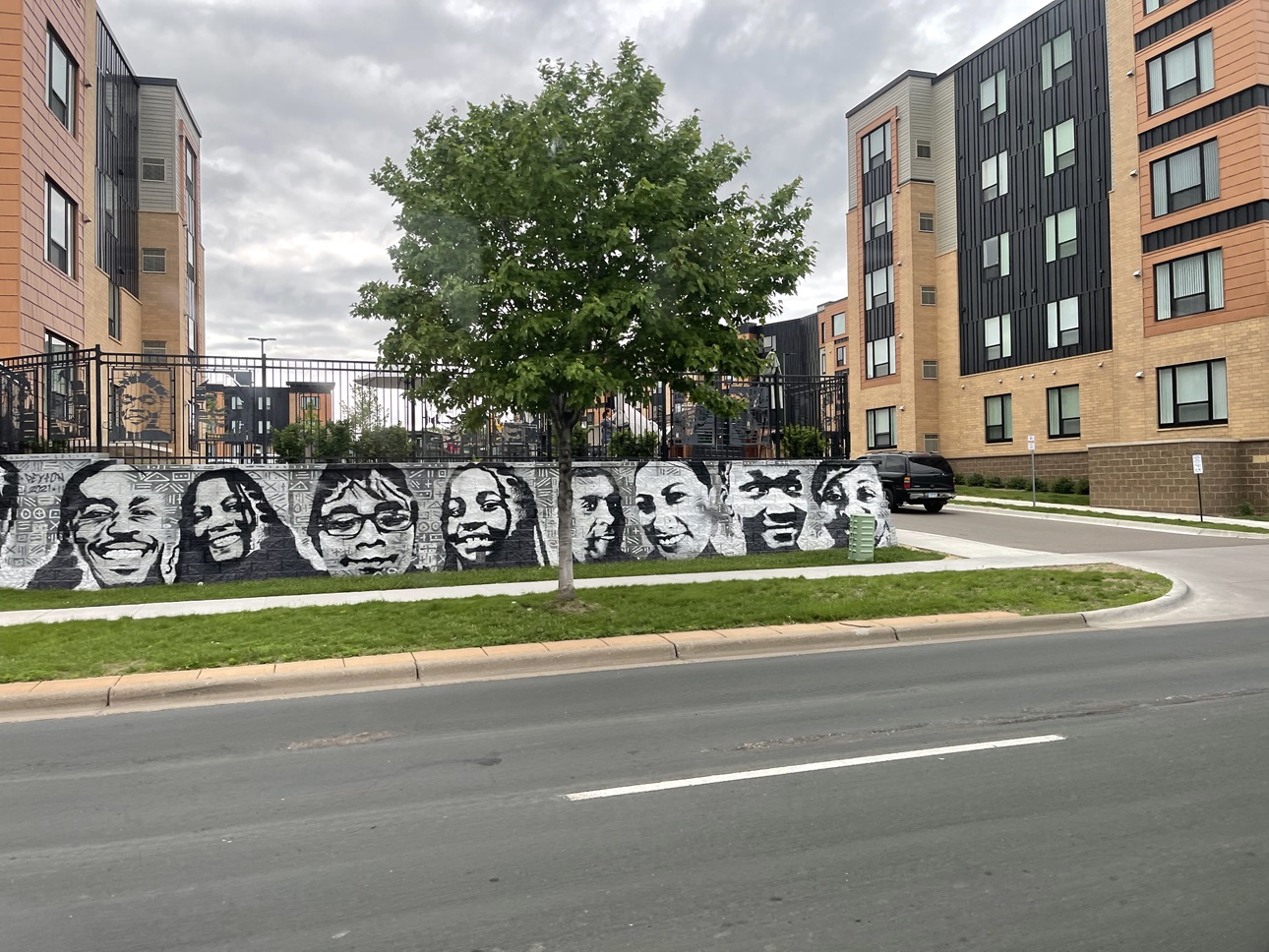Brooklyn Center Housing

Improving Housing Quality and Affordability while Supporting Equitable New Development in a First-Ring Suburb
The panelists assembled a wide variety of recommendations for the city of Brooklyn Center to explore as it moves into its next chapter as a city. These recommendations reflect the number of opportunities the city has at its disposal, and the panel encourages the city to be very intentional about focusing on these housing needs and affordability with a sense of urgency. The top recommendations that the panelists suggest city staff focus on for the rest of 2022 and into 2023 are listed here, followed by a snapshot of all recommendations.
- Hire a housing program coordinator to increase staff capacity with a focus exclusively on housing issues. Immediate responsibilities would include developing relationships with rental owners, tenants, neighborhood organizations, citizen advisory and housing committees, and developers; managing existing programs and developing new programs and policies; and seeking funding opportunities. This should be a high-profile position to ensure that the housing goals of the city and residents are achieved.
- Create an Equitable Development Scorecard with specific metrics for community benefits related to the Opportunity Site and hiring commitments tied to job training programs.
- Implement the next phase of essential tenant protections, including source-of-income protections, inclusive tenant screening, and limiting month-to-month leases.
- Establish a housing trust fund. Create a housing policy plan, outline funding sources, and prioritize the programs that will benefit from its funds.
- Initiate conversations with sources of rental assistance, so they are ready to be deployed as developments occur (i.e., Minneapolis Public Housing Authority and Metro HRA for project-based vouchers).
- Establish a community information and education hub and, in particular, aggressively advertise and connect people to financial literacy programs. It is critical for residents to start today, so they are ready for the opportunities.
- Identify NOAH properties and form relationships with their owners, so that all subsequent maintenance tracking and NOAH protection programs are well targeted.
- Amend sales tax proposal to target funding for affordable housing at the Opportunity Site, and provide NOAH rehab funds to address rental housing building code and livability issues.
- Formalize the Opportunity Site citizens advisory council to create a formal board of review and elevated community engagement system related to the Opportunity Site.
- Create enhanced partnerships, and seek support to fund new and expanded program recommendations. This includes but is not limited to Homes within Reach, Family Housing Fund, Huntington Bank, and the Minnesota Housing Finance Agency.
Please download the full report for the complete list of short, medium, and long-term recommendations.
Report Summary: The panelists assembled a wide variety of recommendations for the city of Brooklyn Center to explore as it moves into its next chapter as a city. These recommendations reflect the number of opportunities the city has at its disposal, and the panel encourages the city to be very intentional about focusing on these housing needs and affordability with a sense of urgency. The top recommendations that the panelists suggest city staff focus on for the rest of 2022 and into 2023 are listed here, followed by a snapshot of all recommendations.
- Hire a housing program coordinator to increase staff capacity with a focus exclusively on housing issues. Immediate responsibilities would include developing relationships with rental owners, tenants, neighborhood organizations, citizen advisory and housing committees, and developers; managing existing programs and developing new programs and policies; and seeking funding opportunities. This should be a high-profile position to ensure that the housing goals of the city and residents are achieved.
- Create an Equitable Development Scorecard with specific metrics for community benefits related to the Opportunity Site and hiring commitments tied to job training programs.
- Implement the next phase of essential tenant protections, including source-of-income protections, inclusive tenant screening, and limiting month-to-month leases.
- Establish a housing trust fund. Create a housing policy plan, outline funding sources, and prioritize the programs that will benefit from its funds.
- Initiate conversations with sources of rental assistance, so they are ready to be deployed as developments occur (i.e., Minneapolis Public Housing Authority and Metro HRA for project-based vouchers).
- Establish a community information and education hub and, in particular, aggressively advertise and connect people to financial literacy programs. It is critical for residents to start today, so they are ready for the opportunities.
- Identify NOAH properties and form relationships with their owners, so that all subsequent maintenance tracking and NOAH protection programs are well targeted.
- Amend sales tax proposal to target funding for affordable housing at the Opportunity Site, and provide NOAH rehab funds to address rental housing building code and livability issues.
- Formalize the Opportunity Site citizens advisory council to create a formal board of review and elevated community engagement system related to the Opportunity Site.
- Create enhanced partnerships, and seek support to fund new and expanded program recommendations. This includes but is not limited to Homes within Reach, Family Housing Fund, Huntington Bank, and the Minnesota Housing Finance Agency.
Please download the full report for the complete list of short, medium, and long-term recommendations.


